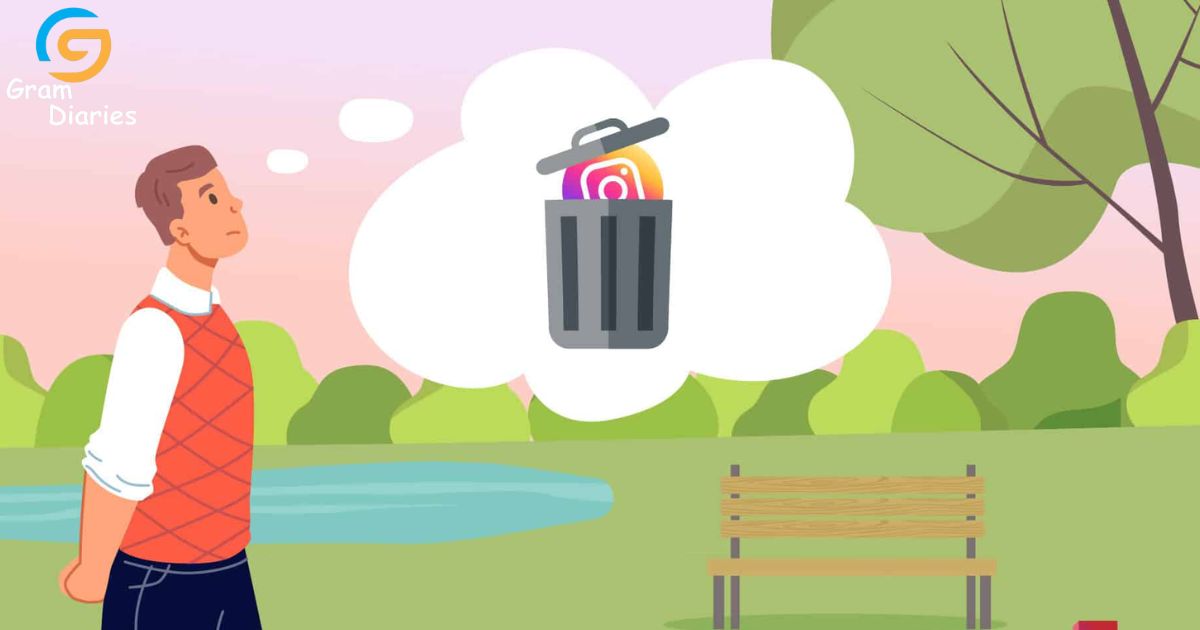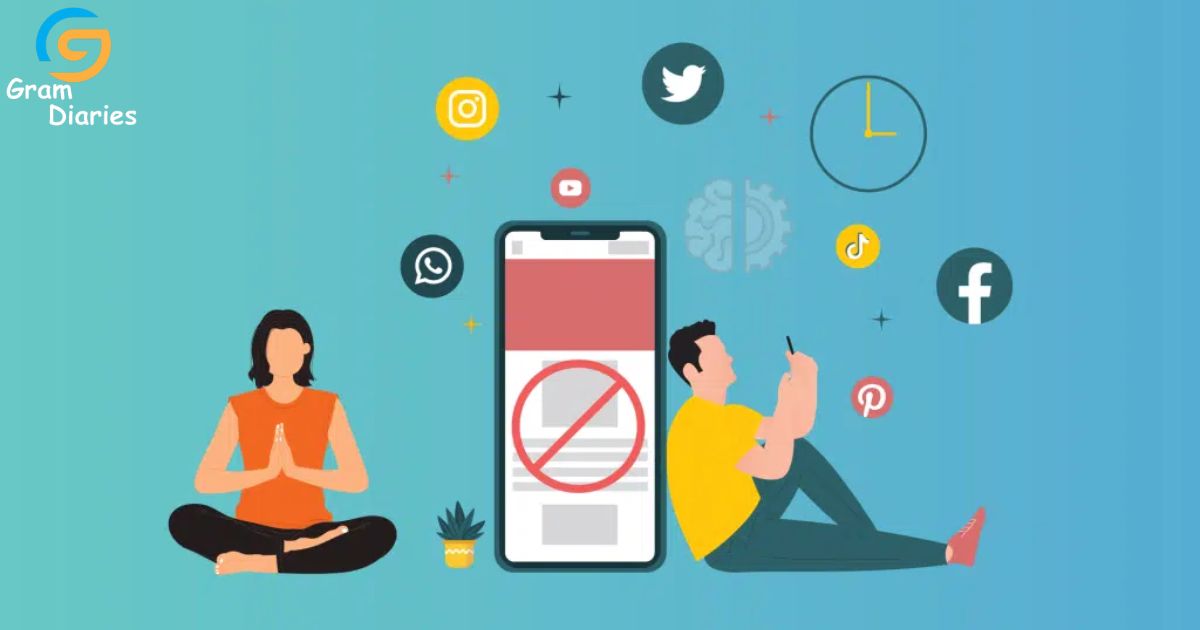In today’s digital age, where social media platforms dominate our lives, it may seem counterintuitive for someone, especially a guy, to delete their Instagram account. However, amidst growing privacy concerns, social media addiction, and the negative impact on mental health, many individuals are choosing to take a step back from the online world. This article explores the reasons why a guy might choose to delete his Instagram, shedding light on the motivations behind this decision and offering insights into the importance of prioritizing personal well-being and real-life connections.
Key Takeaways
- Privacy concerns and the need to safeguard personal information may be a reason for a guy to delete his Instagram.
- The desire to break free from social media addiction and build genuine connections in offline lives can motivate a guy to delete his Instagram.
- Excessive social media use can negatively impact mental health and self-perception, which may lead a guy to delete his Instagram.
- Prioritizing mental well-being and establishing healthier habits can be a driving factor for a guy to delete his Instagram.
Growing Privacy Concerns
In light of the growing privacy concerns, individuals are becoming more cautious with their online presence and are considering deleting their social media accounts to protect their personal information. With the rise of data breaches, hacking incidents, and the misuse of personal data by social media platforms, it is no wonder that people are reevaluating their digital footprint.
Privacy has become a fundamental need, and individuals are starting to prioritize it over the benefits of social media. Deleting social media accounts provides a sense of control and allows individuals to safeguard their personal information from being exploited.
However, while privacy concerns are a valid reason for deleting social media accounts, it is important to acknowledge another aspect of this issue: social media addiction. Transitioning into the subsequent section, let’s explore the detrimental effects of excessive social media use and its impact on individuals.
Social Media Addiction
Individuals struggling with social media addiction often find themselves constantly checking their profiles and feeling a deep sense of FOMO (fear of missing out). This addiction can have a significant impact on their mental health and overall well-being.
It is crucial to understand the reasons behind this addiction in order to address it effectively. Social media addiction stems from the need for validation, acceptance, and a sense of belonging. The constant need for likes, comments, and followers reinforces the belief that one’s worth is tied to their online presence.
However, it is important to recognize that true belonging and self-worth come from within, not from external validation. By deleting their social media profiles, individuals can break free from the cycle of addiction and focus on building genuine connections and a sense of belonging in their offline lives.
Focusing on Real-Life Relationships
By prioritizing face-to-face interactions and nurturing meaningful connections, individuals can cultivate a healthier and more fulfilling social life. In today’s digital age, it is easy to get caught up in the world of social media and virtual connections, often at the expense of real-life relationships.
However, research shows that spending excessive time on social media can lead to feelings of loneliness, depression, and anxiety. In contrast, face-to-face interactions provide a sense of belonging and fulfillment that cannot be replicated online.
By investing time and effort into building and maintaining real-life relationships, individuals can experience the benefits of genuine human connection. This includes increased happiness, improved mental health, and a stronger support network. While social media has its place in modern society, it is essential to strike a balance and prioritize offline interactions to create a more meaningful social life.
Negative Impact on Mental Health
Research has shown that excessive use of social media can have a significant detrimental effect on an individual’s mental health, leading to increased rates of anxiety and depression. The constant exposure to carefully curated highlight reels of others’ lives can lead to feelings of inadequacy and low self-esteem.
It fosters a culture of comparison and self-doubt, where individuals feel the need to constantly prove their worth. Moreover, social media often promotes a distorted sense of reality, where people present an idealized version of themselves and their experiences.
This creates a disconnection between the online persona and real-life relationships, further exacerbating feelings of loneliness and isolation. To combat these negative impacts, individuals may choose to delete their social media accounts, prioritizing their mental well-being and fostering healthier relationships in the physical world.
Escaping the Pressure of Comparison
In today’s digital age, social media has become a breeding ground for comparison. The constant exposure to carefully curated highlight reels of others’ lives can lead to feelings of inadequacy and self-doubt. To escape the pressure of comparison, individuals are increasingly seeking ways to prioritize their mental well-being and focus on their own personal growth and happiness.
Social Media-Induced Self-Doubt
Unquestionably, the relentless exposure to carefully curated online personas on social media platforms can trigger pervasive self-doubt among individuals. The constant bombardment of picture-perfect lives and flawless bodies can lead to feelings of inadequacy and comparison. This phenomenon is particularly prevalent among young people, who are more susceptible to social pressures and the desire for belonging.
- Reasons for social media-induced self-doubt:
- Idealized representations: Social media often presents an unrealistic version of reality, where people showcase only their best moments and edited photos, leading others to feel insecure about their own lives.
- Highlighting insecurities: Comparing oneself to others on social media can amplify existing insecurities, such as body image issues or feelings of not being successful enough.
- The impact of self-doubt:
- Mental health effects: Constant comparison can contribute to feelings of depression, anxiety, and low self-esteem.
- Negative self-perception: Individuals may begin to question their worth and abilities, leading to a lack of confidence in their own accomplishments.
In order to combat social media-induced self-doubt, it is important to prioritize self-care, practice digital detoxes, and remind oneself that what is portrayed on social media is not always an accurate representation of reality.
Seeking Mental Well-Being
To achieve a sense of mental well-being and escape the pressures of comparison, individuals may consider engaging in activities that promote self-reflection and mindfulness. In today’s fast-paced and interconnected world, it is easy to get caught up in the endless cycle of comparison on social media platforms.
The constant exposure to curated and idealized versions of other people’s lives can lead to feelings of inadequacy and self-doubt. Seeking mental well-being requires a conscious effort to step back from these external influences and focus on one’s own inner self.
Activities such as journaling, meditation, and spending time in nature can provide a much-needed respite from the noise of comparison and foster a deeper understanding of oneself. By cultivating self-reflection and mindfulness, individuals can find a sense of belonging within themselves, rather than seeking validation from external sources.
Seeking a Digital Detox
In today’s hyperconnected world, the constant presence of social media can often lead to social media burnout and a decline in mental well-being. This has prompted many individuals to seek a digital detox, taking a break from the virtual world in order to prioritize their mental health. By disconnecting from social media platforms, individuals can reclaim their time, reduce feelings of comparison and anxiety, and focus on activities that bring them true fulfillment and happiness.
Social Media Burnout
Experiencing the detrimental effects of constant scrolling and comparison, individuals are increasingly seeking a digital detox to combat social media burnout. The pressure to constantly curate the perfect online persona, coupled with the fear of missing out on others’ seemingly amazing lives, has led to a rise in mental health issues such as anxiety and depression.
To address this issue, people are adopting a digital detox, which involves taking a break from social media platforms to rejuvenate their mental well-being. This practice allows individuals to reconnect with the present moment, cultivate real-life relationships, and focus on their own personal growth.
By prioritizing mental well-being over the need for constant online validation, individuals can regain control of their lives and find a sense of belonging within themselves and their immediate surroundings.
Prioritizing Mental Well-Being
Individuals who feel overwhelmed by the constant pressures of social media may consider a digital detox as a means of prioritizing their mental well-being. In today’s hyperconnected world, social media has become an integral part of our daily lives.
However, the constant exposure to curated lives and the fear of missing out can have detrimental effects on our mental health. Taking a break from social media allows individuals to disconnect from the virtual world and focus on their personal well-being.
This digital detox provides an opportunity for self-reflection, allowing individuals to reevaluate their priorities and establish healthier habits. By stepping away from the constant stream of updates and notifications, individuals can reclaim their time, reduce stress, and enhance their overall mental well-being. Making the decision to prioritize mental well-being over social media pressures is a powerful choice that can lead to a more fulfilling and balanced life.
Prioritizing Productivity and Time Management
A key aspect of successful prioritizing productivity and time management is setting clear goals and allocating a specific number of hours each day to tasks that align with those objectives. By structuring our time effectively, we can maximize our output and accomplish more in less time. Here are a few strategies to help improve productivity and time management:
- Identify and prioritize tasks: Start by identifying the most important tasks that need to be accomplished and prioritize them based on their urgency and importance.
- Break tasks into smaller chunks: Breaking down larger tasks into smaller, manageable chunks can make them feel less overwhelming and more achievable.
- Use time-blocking techniques: Allocate specific time blocks for different tasks or activities to ensure that each task receives the necessary attention and focus.
- Minimize distractions: Create a distraction-free work environment by turning off notifications, closing unnecessary tabs, and setting boundaries with colleagues or family members.
Conclusion
In conclusion, there are various reasons why a person may choose to delete their Instagram account. These include concerns over privacy, addiction to social media, prioritizing real-life relationships, negative impacts on mental health, the pressure of comparison, seeking a digital detox, and prioritizing productivity. By understanding these motivations, individuals can make informed decisions about their social media usage and strive for a healthier balance between the digital world and their personal lives.











